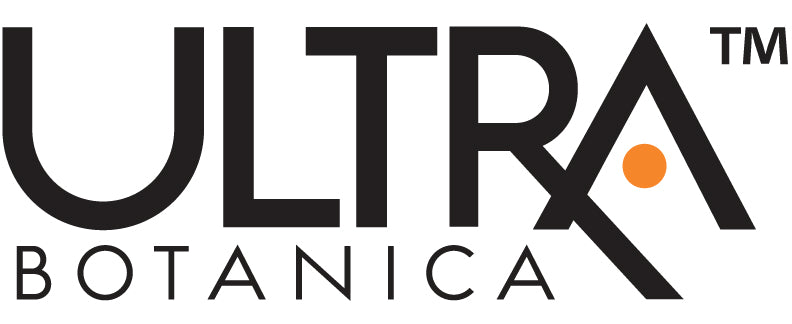
Quercetin is a flavonol, a plant compound from a group called flavanoids common to many plant foods, including onions and apple skins.
Quercetin has emerged from relative obscurity to become a popular health supplement, generating considerable buzz in the wellness world. In 1980, only 32 studies existed on quercetin.
Fast forward to 2022, and that number has skyrocketed to 2,692 studies, highlighting a surge in scientific interest surrounding quercetin health benefits.
But what exactly are the purported quercetin health benefits that have captured so much attention? This exploration delves into the science behind quercetin, uncovering its potential to impact immune health, memory, frailty, allergies, and even longevity.
Understanding Quercetin
Quercetin belongs to a group of plant compounds called flavonoids, specifically classified as a flavonol. Widely found in nature, quercetin is abundant in fruits, vegetables, and beverages like tea and red wine.
Think vibrant red onions, crisp apples, and rich green broccoli – which all boast a healthy dose of quercetin. Dark cherries and uncooked berries are also excellent examples of foods with quercetin.
However, the human body doesn’t produce quercetin. So we get this beneficial compound primarily through diet or supplements. This begs a couple questions – what makes quercetin so special? And, are you getting enough? Read on to find out!
Quercetin as an Antioxidant Powerhouse
One of the primary ways quercetin is believed to work its magic within the body is by acting as a powerful antioxidant. Its antioxidant properties are very well documented.
Quercetin helps neutralize harmful free radicals, which are unstable molecules that can damage cells and contribute to a range of health issues, from premature aging to chronic diseases.
While a balanced diet rich in fruits and vegetables naturally provides some quercetin, many choose to supplement to reap its potential benefits.

Quercetin Health Benefits: Diving into the Research
While research on quercetin is ongoing, studies suggest several potential benefits:
Immune Support
Quercetin shows promise as an immune-boosting agent, with research suggesting its effectiveness in supporting wellness. Its strong antioxidant properties help neutralize free radicals, which can contribute to oxidative stress and weaken the immune system.
Studies show that quercetin may exhibit antiviral properties against certain viruses, though further research is necessary. Additionally, one study revealed that quercetin directly regulates the functional properties of immune cells, highlighting its role in supporting immune health.
Brain Health and Memory
Age-related cognitive decline is a growing concern, and researchers are actively seeking natural ways to maintain cognitive function as we age. Intriguingly, a 2021 study found that regular consumption of quercetin-rich onions over 24 weeks was linked to reduced cognitive decline.
While more research is needed, this initial finding sparks hope for quercetin’s potential to support brain health and memory. There are also small studies showing that quercetin may have positive effects on mental health.
Heart Health
Maintaining a healthy heart is a lifelong goal, and quercetin has gained recognition for its potential cardiovascular benefits.
As part of the flavonoid family, quercetin is known to support heart health by combating free radicals, which can cause oxidative stress—a key factor in the development of cardiovascular issues.
Quercetin’s benefits include promoting healthy blood vessels and addressing risk factors for heart disease, such as high cholesterol and atherosclerosis. It helps support healthy blood pressure, reduces LDL cholesterol levels, and fosters overall cardiovascular wellness.
Additionally, studies have explored how diets rich in flavonoids like quercetin may positively impact blood sugar, further contributing to heart health.

Managing Allergies
Allergies can make life miserable, but quercetin shows promise in alleviating allergy symptoms. Acting as a “natural antihistamine,” quercetin appears to block the release of histamine, which is a type of signaling pathway.
Histamine is the pesky compound that triggers those familiar allergy symptoms: sneezing, itching and watery eyes. This has led some researchers to investigate quercetin as a potential natural remedy for allergy sufferers.
Could a simple quercetin supplement be the answer to your seasonal allergy woes?
Exercise Performance and Recovery
For fitness enthusiasts, quercetin may offer a range of benefits. Research suggests it has the potential to enhance exercise performance and aid in recovery by mitigating oxidative stress caused by intense physical activity.
This powerful antioxidant works by neutralizing free radicals, thereby preventing cellular damage and helping the body repair and recover.
Additionally, quercetin has been linked to improved endurance, as it may enhance the production of mitochondria—the energy powerhouses of cells—resulting in better stamina during workouts.
For those seeking to optimize their fitness journey, incorporating quercetin-rich foods or supplements could be a game-changer.
UV Skin Aging
UV radiation triggers several signaling pathways that contribute to oxidative stress, a key driver of skin aging. This process leads to cell damage and, in severe cases, cell death, accelerating the breakdown of skin’s structural integrity.
Quercetin, with its potent antioxidant properties, has demonstrated protective effects against UV-induced damage, making it a promising agent in the prevention of skin aging.
Its ability to neutralize free radicals and reduce oxidative stress may help slow down the aging process by preserving cellular health.
Additionally, quercetin’s ability to modulate cellular responses and support skin repair mechanisms adds further layers of defense against UV-related damage.
Longevity and Anti-Aging
The quest for longevity has captivated civilizations for centuries. Emerging research explores quercetin’s potential role in promoting healthy aging and longevity by protecting cells from oxidative stress damage and supporting overall cellular health.
By neutralizing free radicals, also known as reactive oxygen species, quercetin prevents damage and helps safeguard the body against accelerated aging.

Top Foods Rich in Quercetin
Quercetin, a natural plant compound with potent antioxidant activity, is found in a variety of nutrient-rich foods. Incorporating these items into your diet can help neutralize free radicals, combat oxidative stress, and support overall health:
- Apples: The skins, especially of red apples, are a concentrated source of quercetin, making them a simple yet effective addition to your diet.
- Onions: Red and yellow onions are among the richest sources of quercetin, with the outer layers containing the highest amounts.
- Berries: Blueberries, cranberries, and elderberries are packed with antioxidants including quercetin, and contribute to immune and heart health.
- Leafy Greens: Kale, broccoli, spinach, and other dark leafy greens provide quercetin alongside essential vitamins and minerals.
- Capers: While less common in everyday diets, capers are one of the most concentrated sources of quercetin, offering a flavorful way to boost intake.
- Tea: Green and black teas contain moderate amounts of quercetin, providing a soothing beverage option with added antioxidant benefits.
- Citrus Fruits: Oranges and grapefruits contain smaller but notable amounts of quercetin, along with vitamin C, to enhance your body’s natural defenses.
- Tomatoes: Fresh and sun-dried tomatoes deliver quercetin along with lycopene, another powerful antioxidant for cellular protection.
Diets high in quercetin-rich foods not only support your body’s defenses against oxidative stress but also enhances your overall dietary variety, ensuring a broad spectrum of nutrients that contribute to better health.
Quercetin Sources: Food vs. Supplements
While incorporating quercetin-rich foods into your diet is a great first step, achieving therapeutic doses solely through food can be challenging.
Quercetin supplements like UltraQüercetin™ offer a convenient way to increase your intake.
Supplements are available in various forms, including capsules, tablets, and powders. A standard dosage typically ranges from 500 to 1000 mg daily, though consulting a healthcare provider for personalized recommendations is always best, especially if you take medications.
They can advise on potential interactions or appropriate dosages. They will also be able to advise you on how quercetin supplementation may impact existing health conditions.

The Future of Quercetin Research
While current research highlights potential quercetin health benefits, much remains to be explored. Continued scientific inquiry into this versatile plant compound could unveil further benefits and optimal uses.
This continual exploration is critical in furthering our understanding of the therapeutic possibilities within nature’s abundant pharmacy. Additionally, more research needs to be done on the long-term impact of taking large amounts of quercetin.
Conclusion
The growing body of evidence surrounding quercetin health benefits makes it clear that this plant compound holds much promise.
As research progresses and scientific understanding deepens, we’ll gain a clearer picture of its impact on human health. But for those looking for natural ways to support well-being, quercetin deserves serious consideration.
Frequently Asked Questions
What fruits and vegetables is quercetin found in?
Quercetin is found in apples (especially the skin), red and yellow onions, berries like blueberries and cranberries, leafy greens such as broccoli and spinach, tomatoes, and finally, capers, which are particularly rich.
Citrus fruits and teas also offer smaller amounts, contributing to overall antioxidant activity.
What is a normal daily dose of quercetin?
A typical daily dose of quercetin ranges from 500 to 1,000 mg when taken as a supplement.
However, individual needs vary, and it’s important to consult with a healthcare provider before starting supplementation to determine the appropriate dose based on personal health conditions and dietary habits.

What are the quercetin health benefits on blood pressure?
Quercetin has shown promise in supporting blood pressure already in the healthy range. By neutralizing free radicals and combating oxidative stress, quercetin promotes the relaxation of blood vessels, which can support healthy blood pressure.
Additionally, it may support healthy cholesterol levels and vascular function, and therefore overall heart health.
What are the precautions against using quercetin?
While quercetin health benefits are promising, precautions are necessary when considering supplementation. High doses of quercetin may interact with medications such as blood thinners or chemotherapy drugs.
Long-term effects of high-dose usage remain unclear, so it is essential to consult a healthcare provider. Pregnant or breastfeeding individuals and those with underlying conditions should exercise extra caution before using quercetin supplements.





Share:
Understanding and Managing Seasonal Affective Disorder
Essential Heart Health Tips for a Stronger Tomorrow